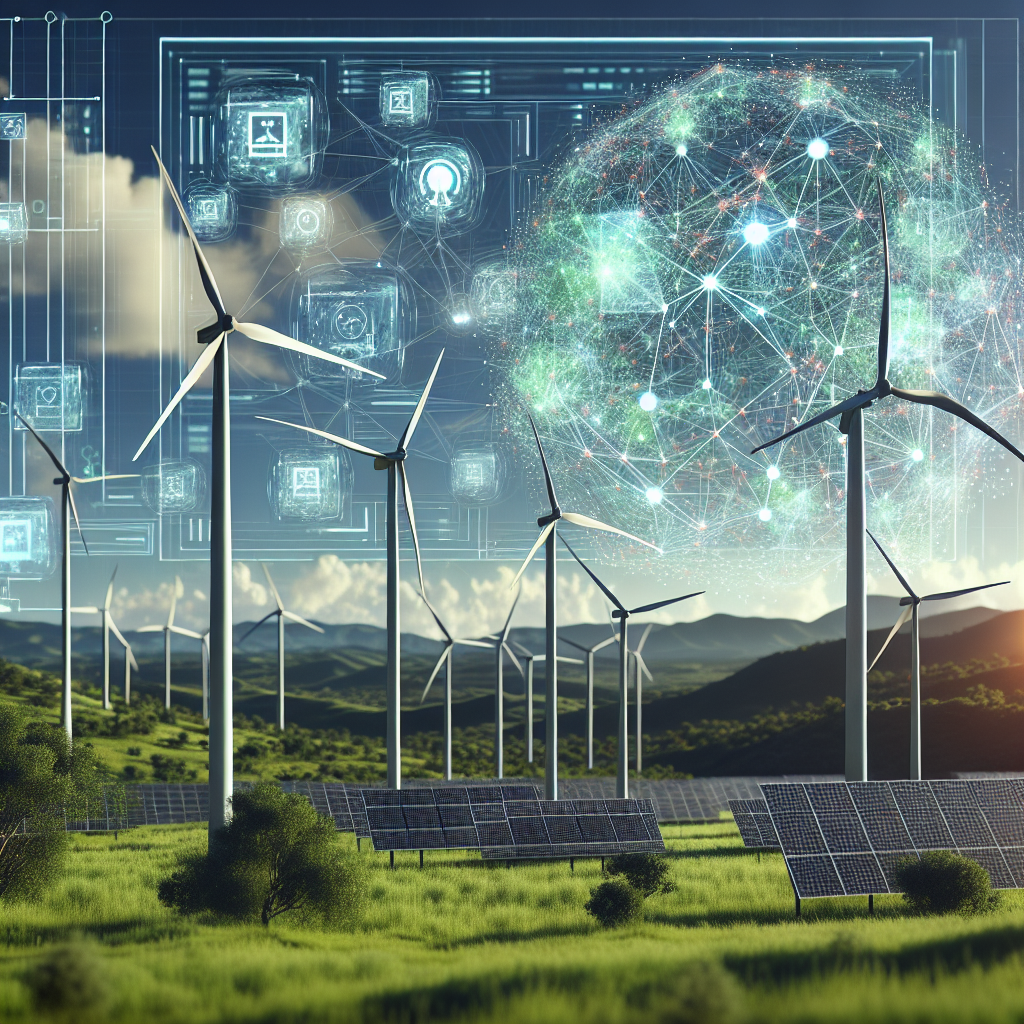With the increasing focus on sustainability and reducing our carbon footprint, renewable energy sources like solar and wind power are becoming more prevalent. However, one of the main challenges facing these sources is their intermittent nature, which can lead to fluctuations in energy production and consumption. This is where machine learning comes in, as it can be used to optimize energy consumption in renewables and help make these sources more reliable and efficient.
Machine learning is a subset of artificial intelligence that involves the development of algorithms and models that can learn from and make predictions or decisions based on data. In the context of renewable energy, machine learning can be used to analyze large amounts of data on energy production and consumption, weather patterns, and other relevant factors to optimize energy usage and storage.
One of the main ways machine learning can optimize energy consumption in renewables is through predictive modeling. By analyzing historical data on energy production and consumption, machine learning algorithms can forecast future energy needs and adjust energy production accordingly. This can help ensure that energy is produced when it is needed most, reducing waste and increasing efficiency.
Machine learning can also be used to optimize energy storage in renewables. For example, by analyzing data on energy production and consumption patterns, machine learning algorithms can determine the most efficient way to store excess energy for later use. This can help reduce reliance on traditional energy sources and make renewable energy more reliable.
Another way machine learning can optimize energy consumption in renewables is through demand response. By analyzing data on energy consumption patterns and predicting future demand, machine learning algorithms can adjust energy production and consumption in real-time to meet changing needs. This can help reduce energy costs and improve overall energy efficiency.
Overall, machine learning has the potential to revolutionize the way we use and consume renewable energy. By analyzing large amounts of data and making predictions based on that data, machine learning algorithms can help optimize energy consumption in renewables and make these sources more reliable and efficient.
FAQs:
Q: How does machine learning optimize energy consumption in renewables?
A: Machine learning algorithms analyze data on energy production and consumption, weather patterns, and other relevant factors to make predictions and decisions on energy usage and storage. This helps optimize energy consumption in renewables by ensuring that energy is produced and stored efficiently.
Q: What are some examples of machine learning applications in renewable energy?
A: Some examples of machine learning applications in renewable energy include predictive modeling, energy storage optimization, and demand response. These applications help optimize energy consumption in renewables and make these sources more reliable and efficient.
Q: Can machine learning help reduce energy costs in renewables?
A: Yes, machine learning can help reduce energy costs in renewables by optimizing energy consumption and storage, as well as by adjusting energy production in real-time to meet changing demand. This can help make renewable energy more cost-effective and competitive with traditional energy sources.
Q: What are the benefits of using machine learning to optimize energy consumption in renewables?
A: Some benefits of using machine learning to optimize energy consumption in renewables include increased efficiency, reduced waste, improved reliability, and lower energy costs. Machine learning can help make renewable energy sources more competitive and sustainable in the long run.
In conclusion, machine learning has the potential to revolutionize the way we use and consume renewable energy. By analyzing data and making predictions based on that data, machine learning algorithms can help optimize energy consumption in renewables and make these sources more reliable and efficient. This can help reduce our reliance on traditional energy sources and move towards a more sustainable future.

